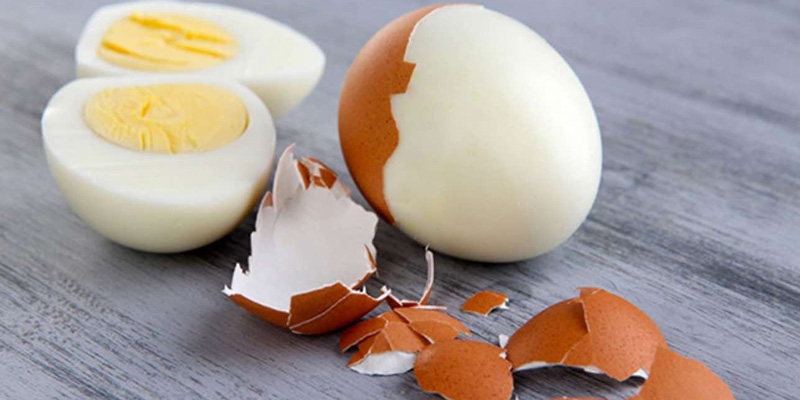1 Foods That Should Not Be Eaten With Eggs
– Persimmon: After eating eggs, one should avoid consuming persimmons as it can lead to food poisoning and acute gastroenteritis. Vomiting may occur about 1-2 hours after consumption. A solution of 20g of alum powder mixed with 200ml of boiling water, or fresh ginger juice combined with warm water, can be drunk to induce vomiting. If vomiting does not occur, repeat the dose or seek medical attention.

– Sugar: Many people tend to add sugar while frying eggs, but this is a mistake. Additionally, consuming sugar after eating eggs can hinder absorption and negatively impact health. Some housewives use sugar syrup while stewing eggs and meat to enhance the color. However, the combination of Protein Acid Amino Fructose in eggs and Lysine can form a compound that is difficult for the body to absorb.
– Tea: Drinking tea after eating eggs is not recommended as it can be detrimental to health. The presence of Acid tannic in tea, when combined with the Protein in eggs, forms a compound that slows down intestinal activity and prolongs the storage of feces in the intestine. This can lead to constipation and increase the risk of harmful substance accumulation in the body.

– Milk: Consuming eggs and milk together or mixing them in a dish is not advisable. Milk contains Lactose, while eggs are rich in Protein. When these two substances react, it can hinder Lactose absorption and digestion.
– Pig brain: Combining eggs with pig brain can lead to a significant increase in blood cholesterol levels, resulting in sudden high blood pressure and even death.
It is also not recommended to eat eggs with meats such as goose, rabbit, or turtle meat.
2 How to Eat Eggs for Optimal Absorption

– Avoid raw eggs: Raw eggs can harbor bacteria, both internally and externally. Therefore, it is best to boil, cook in soup, or make porridge with eggs instead of consuming them raw.
– Don’t eat charred egg whites: When frying or making sunny-side-up eggs, use low heat to prevent charring the outside while leaving the inside undercooked. If the outer layer (the egg white) is charred, avoid eating it as it can hinder absorption and destroy water-soluble vitamins like B1 and B2.
– Combine eggs with tomatoes: Eggs contain Lysin, an essential amino acid, while tomatoes are rich in natural Vitamin A, beneficial for eyesight. Together, they make a delicious and nutritious soup that is easy to digest.

– Boil eggs properly: The correct way to boil eggs is to place them in a pot with cold water and bring it to a boil together. Once the water boils, reduce the heat and cook for 2 minutes. Then, turn off the heat and let the eggs soak for 5 minutes. This method ensures the eggs are just right, and the yolks are not overcooked. Adding a pinch of salt to the water helps prevent the eggs from cracking during boiling.
– Absorption rates: The absorption rates for different egg preparations are as follows: raw eggs (40%), boiled eggs (100%), fried eggs (98.5%), sunny-side-up eggs (85%), and steamed eggs (87.5%). Based on these rates, boiled eggs are the best way to ensure optimal nutrient absorption.
The information provided above offers insights into what to consider and avoid when consuming eggs. By following these guidelines, one can develop healthier egg-eating habits and ensure proper absorption of the nutrients present in eggs.
Reference: bestie.vn






































